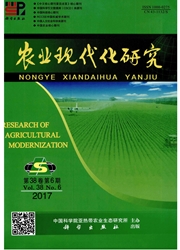

 中文摘要:
中文摘要:
本文以广东省连南县为例,介绍了“规划到户、责任到人”(简称“双到”)的扶贫瞄准机制,即根据贫困户的发展意愿和特点,制定发展规划,明确贫困户对应的帮扶责任人和考评标准。通过此项目的实施,广东省有效地提高了贫困户收入,降低了贫困发生率和多维贫困;提高了农民自我可持续发展能力,活跃了农村经济。“双到”扶贫项目是在经济较发达地区缩小贫富差距的一个案例,为实现低保和扶贫的衔接、城乡资源双向流动、动态贫困瞄准、扶贫任务的“官员问责制”提供了借鉴。
 英文摘要:
英文摘要:
This paper introduces the poverty target system in Liannan County, Guangdong Province which name is household-specific planning and facilitator-specific responsibility, short in Shuangdao. Shuangdao means targeting to the poor households, and delivering programmes based on their needs and character. In addition, each poor household has been tied with a responsible person who works under strict evaluation system. The "Shuang Dao" programme has effectively reduced Guangdong's poverty ratio and multi-dimensional poverty, and largely germinated the poor households' income, self-sustainable development capacity as well as the governance capability of village management. This programme has also stimulated the rural economy. It becoming a good practice of reducing income gap in well economically developed regions, and bringing leading points for "Two Matches" policy which means combing Di Bao policy and poverty reduction programmes, dynamic poverty targeting, urban-rural resource mobility, "officials' accountability" in poverty reduction programmes.
 同期刊论文项目
同期刊论文项目
 同项目期刊论文
同项目期刊论文
 期刊信息
期刊信息
